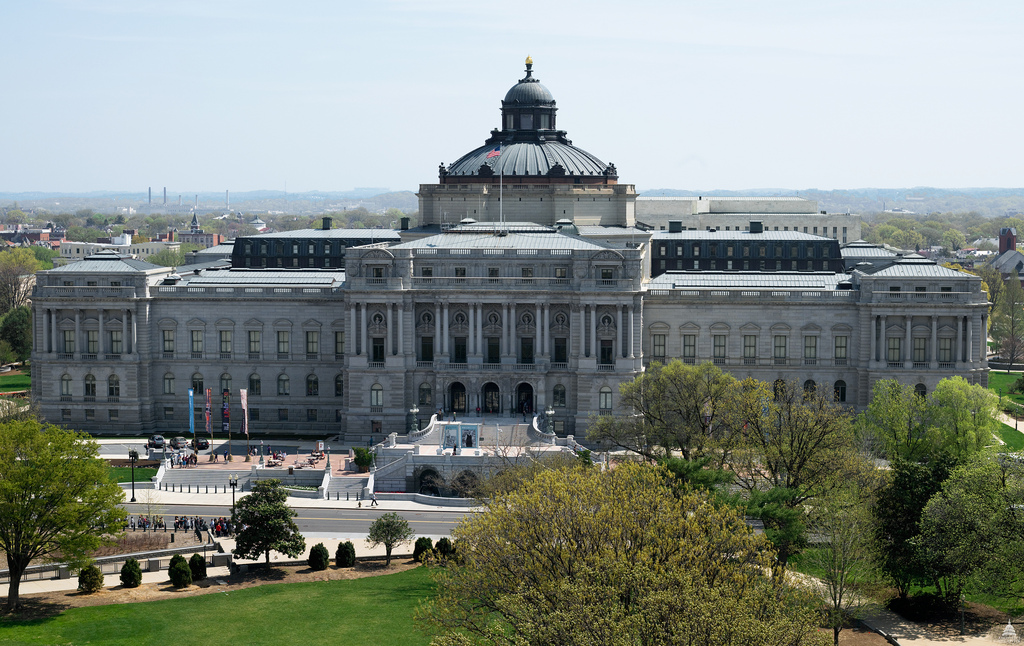
In recent years there has been a lot of talk about opengov at the state, local and international levels, but when it comes to the federal government people just shake their heads and mutter. That is unfortunate, because a lot is happening at the federal level.
Here are five areas where the federal government is making major strides.
5. Innovative uses of technology
When you think of how the government uses technology, innovation often is not the word that comes to mind. More often it’s thought of as clunky, slow, out-of-date, insecure and expensive. But the executive branch has taken a step towards addressing these issues by creating 18F.
18F bills itself as “building the 21st century digital government.” It is an inside-government consultancy that builds technology for government on a cost-recovery basis. Housed at the General Services Administration, 18F addresses the twin problems of outside contractors who build cruddy tools that cost a ton of money as well as underfunded government developers who must use inadequate tools in unfriendly environments. Private sector developers are brought into government in the equivalent of a technology startup to help agencies build new tools and change the way they engage with technology. Most importantly, they work to change the culture around government information technology.
18F connects to opengov because many of its projects are opengov-related and the tools it builds are developed in the open. Projects include cleaning up Federal Election Commission data, a consolidated FOIA request hub, making federal spending transparent and rethinking the portal MyUSA. 18F is changing the way government uses technology, which often results in better, faster disclosure of government information.
4. Open courts
Unfortunately, federal courts are awful about opengov. But I did not want to let the opportunity to praise some great work being done on the federal civil society side, notably Courtlistener, Oyez, ScotusBlogand Cornell’s Legal Information Institute. Respectively, they provide alerts for and deep content regarding federal court decisions; publish audio and transcripts of Supreme Court decisions from 1955 forward; provide real-time reporting and context for current Supreme Court activities; and provide access to many Supreme Court opinions.
3. Improved efforts to provide access to executive branch information
Over the last six years, both Congress and the executive branch have made serious efforts in proactively and responsively releasing information to the public, at least in some (non-national security) arenas.
The most notable effort has been in legislation to fix the Freedom of Information Act. Significant FOIA legislation passed the House and Senatelast Congress, but in slightly different forms so it has yet to be signed into law. The Obama administration, most notably the Department of Justice and financial regulatory agencies, fought against much-needed efforts to improve FOIA because it dared codify a presumption of openness and would require the public’s interest be weighed when evaluating whether to release information the executive branch deemed privileged. The legislation slowly is moving towards passage this Congress.
Other notable efforts ongoing on the FOIA front include the establishment of a FOIA advisory committee, an effort to unify FOIA regulations across all agencies and the construction of a central online FOIA request portal.
On the proactive disclosure side, the Obama administration conducted a survey of all the datasets it held, and — after a FOIA lawsuit — has agreed to release the inventory to the public. It also continues to publish a log of many of the visitors to the White House. And the administration is engaging in a biannual open government planning process, where many agencies publish a plan for releasing information to the public and follow through on some of their commitments; there’s also an international process around domestic transparency commitments. The Data.gov website, which publishes some federal datasets, also is of some value.
Still, there is a long way to go.
Congress has considered (and in a few instances passed) other notable legislation, including the DATA Act discussed below. Also on the docket is a bill — the Access to Congressionally Mandated Reports Act — that would require all agency reports to Congress be published online. The Presidential Library Donations Reform Act, which requires disclosure of donations to presidential libraries, is poised for consideration by the full House and Senate. There are other smart bills being drafted and considered as well.
2. Publishing federal spending information
Last Congress, the DATA Act was signed into law. This bipartisan measure would make much federal spending information available to the public, and would have gone further if not for strong oppositionfrom the Office of Management and Budget. The regulation governing the law currently is jointly being written by OMB and Treasury. By incorporating unique identifiers, following federal spending at a great level of detail and pushing information into a central repository, the DATA Act holds out the promise of transforming our understanding of federal spending. New legislation to extend the DATA Act also has been introduced.
Federal responding requirements like the DATA Act can be transformative. Whatever the merits of the2009 economic stimulus bill, the transparency requirements around the $787 billion legislation have had surprising results: “spending transparency became institutionalized in some states.” In some cases, the availability of Recovery Act data marked the first time officials were able to monitor performance trends for federal contracts, grants and loans across all state agencies. If properly implemented, the DATA Act can have similar follow-on benefits.
1. Open legislative information
By far the most remarkable transformation has been in public access to legislative information. The work to make congressional information available to the public in a structured data format and in bulk has been transformative, and the House literally has changed the way it operates to make this happen. We are here only because of a bipartisan commitment by House leadership who have labored without great acclaim against high bureaucratic barriers to modernize congressional operations.
There’s too much to point out all of the changes, but here are the highlights.
- The House put in its rules a requirement that legislative information be maximally available to the public online.
- It created a bulk data task force that continues to meet to discuss how to better release data to the public, bringing all internal stakeholders together for the first time and engaging with the public as well.
- It built a House-side congressional documents repository.
- It publishes all bills and amendments to be considered on the floor.
- The U.S. Code is now available online in a continuously updated structured data format.
- A project is underway to show in real time how an amendment would change a bill and a bill would change the law.
- There are quarterly public meetings at which inside stakeholders meet with the public to discuss projects and ideas, follow up on commitments, and address public feedback.
- There’s an annual Legislative Data and Transparency Conference that brings together all stakeholders (including the public) to discuss legislative information.
- The House and Senate (and their legislative support agencies) will shortly be publishing bill text, summaries and status information online in bulk and in structured data formats.
- The House permits the use of open source software.
This is no less than a revolution in how Congress makes information available to the public. In turn, it has empowered a huge federal civic technology community that transforms the new data and tools into new ways to communicate with Congress, analyze information and make government more efficient and effective. Literally millions of people each month are directly or indirectly accessing federal legislative information because of this process. The Senate is not as far down the path as the House, and the Library of Congress is notable for its foot-dragging, but we have seen real, tangible, important progress.
Concluding thoughts
What makes all this progress even remarkable is that advocates for opengov at the federal level, especially when it comes to legislative information, have received much less attention recently than advocates at other levels of government. A lot is happening at the federal level, and if we keep working at it the possibilities are endless.
Cross-posted at the Sunlight Foundation blog.
{ Liked this? You may also like There Oughta Be a Law }
— Written by Daniel Schuman

